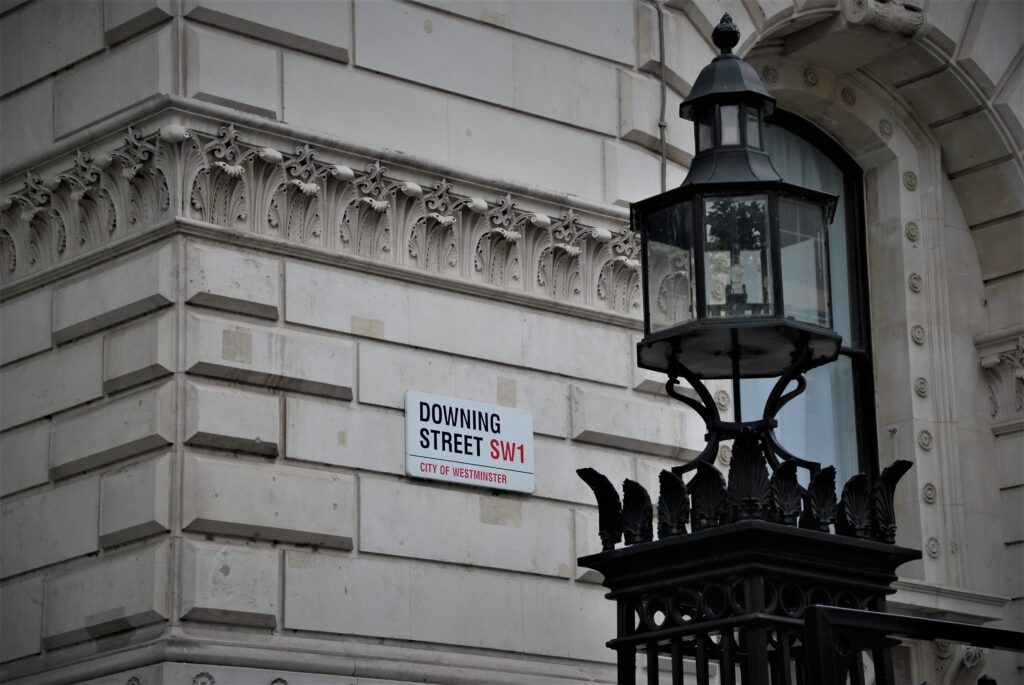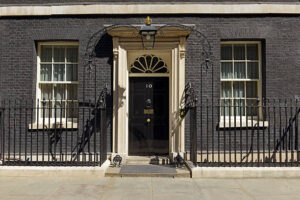As the UK looks for economic stability with Rishi Sunak as the new prime minister, we expect the government to review the countries policies, in a hope that we see falling mortgage rates and positive rental market reforms as planned.
Rishi Sunak is the new prime minister, what to expect under his leadership.
-
Mortgage rates look set to return to 4-5% in 2023, however the days of the 2% or lower mortgage appear to be behind us.
-
On house-building, Sunak states “reforms to increase density in our inner-cities, investing in regenerating brownfield land across the country, and pursuing developments that have community support”.
-
The rental market has stopped growing in size, yet the demand for renting is growing. The government needs to tread carefully with reforms to prevent more private landlords from leaving the sector.
It’s been a political roller coaster over the last few months, accompanied by growing economic uncertainty for UK households at a time when the cost of living is having a growing impact on financial decisions.
So what does the new prime minister have at the top of his agenda when it comes to the housing market and supporting people with their home-related decisions?
Financial and economic stability
It is fair to say everyone is looking for more stability and calm.
The arrival of Rishi Sunak as the new prime minister seems to have gone down well in financial markets, supported by several big policy U-turns from the new Chancellor Jeremy Hunt last week.
The top priority for the new prime minister is how to get the UK’s finances in order to help bring down borrowing costs for business and households and to help tackle the cost of living crisis.
The health of the housing market is inextricably linked to the health of the economy and in particular the cost of mortgages, which have risen up to 6% in recent weeks.
This has delivered a big hit to buying power for those looking to move home, especially since we had become accustomed to sub 2% mortgage rates.
Mortgage rates will start to fall
The cost of borrowing for government and business has fallen in the last 2 weeks and is set to fall further in the weeks ahead, as markets react to the messaging from the Government about balancing the books.
Mortgage rates for new business are starting to fall but still remain well above where they started the year.
The outlook for interest and mortgage rates is still out of the Government’s hands.
We don’t know how much further central banks will have to increase base rates to calm inflation, which is adding to everyone’s cost of living and eroding the value of our incomes.
There is hope that we are approaching the end of interest rate increases, which is good news for savers after a barren decade of low returns on savings, but means buying a home has become more expensive.
It looks like mortgage rates will return to 4-5% in 2023. But anyone looking to buy a home needs to realise that we are not going back to the days of ultra cheap money.
Home ownership and house building
Both Labour and the Conservatives have stated policies to increase home ownership. But it’s hard to grow home ownership if we new homes are not being built.
The appointment of Michael Gove back into the housing and the levelling up ministerial role is a signal that the 2019 manifesto commitment remains to boost jobs and investment right across England. This will, in turn, boost housing delivery.
Gove was also the minister who pushed through the industry solution to address the cladding problems for homeowners in tall residential buildings, removing a big area of uncertainty for consumers and lenders.
Building more homes is often a contentious topic for local residents, who fear extra demands on local services.
Comments on house building from the new prime minister in the summer leadership election suggest he sees the importance of making sure we build homes and the infrastructure to support them.
This would help to ease any extra pressure on local services.
Sunak said he favours “reforms to increase density in our inner-cities, investing in regenerating brownfield land across the country, and pursuing developments that have community support.”
Sticking to reforms for private renting?
There are also big reforms planned in the private rented sector in England, aimed at improving standards of accommodation and shifting the balance of the relationship between landlords and renters.
Again, these were promoted by Michael Gove when he was the housing minister earlier this year.
The rental market is particularly stretched at present, with a lack of new investment by landlords since big tax changes and increased regulation were introduced from 2016 onwards.
The rental market has stopped growing in size, yet the demand for renting is growing, compounded by the rising cost of buying a home.
Rents are rising fast – up 12% in the last year according to our latest index – adding to cost of living pressures.
The case for reform in the rental market is important but it needs to be balanced against how much this pushes landlords out of the market, eroding supply and choice for renters.
This hits those on the lowest incomes hardest and drives calls to increase housing benefit to reduce the risk of people falling into homelessness.
Is the housing reform an uphill battle?
So there is plenty for the new prime minister to cover on the housing brief at a time of rising prices and rents but with the additional risks from higher borrowing costs.
The reality is that the government shouldn’t worry about the short term outlook for housing.
They need to focus on delivering long term stability that gives businesses and households a steady platform to make long term decisions.
The top priority is keeping the economy growing and borrowing costs affordable, while creating an attractive environment to ensure we get the right glow of new investment into growing and improving our ageing housing stock across all areas and housing tenures.
How the changes to the mini-budget affect the housing market.
-
The new Chancellor has axed the majority of tax cuts from the mini-Budget, but changes to stamp duty remain
-
The move should bring stability to the mortgage market
-
But interest rates are still expected to rise and the housing market slowdown is likely to continue.
Jeremy Hunt has axed the majority of tax cuts from the mini-Budget in a bid to calm rattled markets.
As the new Chancellor he announced that the basic rate of income tax would no longer be cut from 20% to 19%, and the energy price guarantee would be reviewed in April 2023, rather than October 2024, as previously planned.
Plans for a one-year freeze of alcohol duty, duty-free shopping for tourists and cuts to the dividend tax rate have also all been scrapped.
These changes join the already abandoned plans to abolish the 45p tax rate and keep corporation tax at 19%.
But in good news for those looking to buy a property, the increase in the stamp duty threshold in England and Northern Ireland from £125,000 to £250,000 will remain in place.
The reduction to National Insurance contributions, which removes the previous 1.25% increase, will also go ahead.
How have markets reacted?
The reaction from financial markets to Hunt’s changes has been positive.
Following his statement, the pound strengthened against the US dollar and gilt yields fell to their lowest level for 10 days.
The fall in gilt yields is important, as these affect swap rates – the interest rates lenders pay when they borrow money for fixed rate mortgages.
It was the sudden rise in gilt yields, and by extension swap rates, following the mini-Budget that caused many lenders to reprice their mortgages.
With gilt yields falling again, the cost of fixed rate mortgages should stabilise and may even fall.
What does it mean for consumers?
While it is good news that markets appear to have stabilised and confidence in the government’s management of the economy is being restored, the changes are unfortunately mainly bad news for consumers.
Scrapping plans to cut the basic rate of income tax will collectively cost Britons £5.9 billion a year.
The review of the energy price guarantee in April next year, rather than October 2024, also means households could face steep hikes in their energy bills, unless the initiative is extended.
Some estimates suggest the end of the scheme could lead to the average annual cost of gas and electricity jumping from £2,500 to more than £4,000.
But there is good news for those looking to purchase a home, as they will still not have to pay stamp duty on the first £250,000 of their purchase.
What impact will it have on the mortgage market?
The reversal of the previously planned tax cuts is also mixed news for the mortgage market.
On the one hand, the renewed stability and fall in gilt yields should make lenders feel more confident about pricing their ranges.
As a result, those who withdrew products may relaunch them, while mortgage rates should stop rising and may even come down.
But the fact that the energy price guarantee is likely to end in April means inflation is likely to stay higher for longer.
This in turn would mean that interest rates are also likely to have to be higher for longer, which will feed through into higher mortgage rates.
How will the housing market be affected?
The combination of higher tax rates, rising utility bills and increased mortgage rates are likely to lead to a further slowdown in activity in the housing market.
Many would-be buyers have already put plans on hold in the face of rising borrowing costs and economic uncertainty.
The reduction in stamp duty is unlikely to be enough to offset this drop, particularly as the change is permanent, meaning there is no rush for buyers to take advantage of it.
As a result, some form of house price correction is still likely in 2023, but it is too early to say how much prices may fall by.
It is worth noting that households have significantly less debt than they did in the run up to the last housing market correction, while lenders are required by regulators to help people who get into financial difficulties and only repossess a property as a last resort.
These factors, combined with the ongoing shortage of homes for sale, should provide some support to prices.



